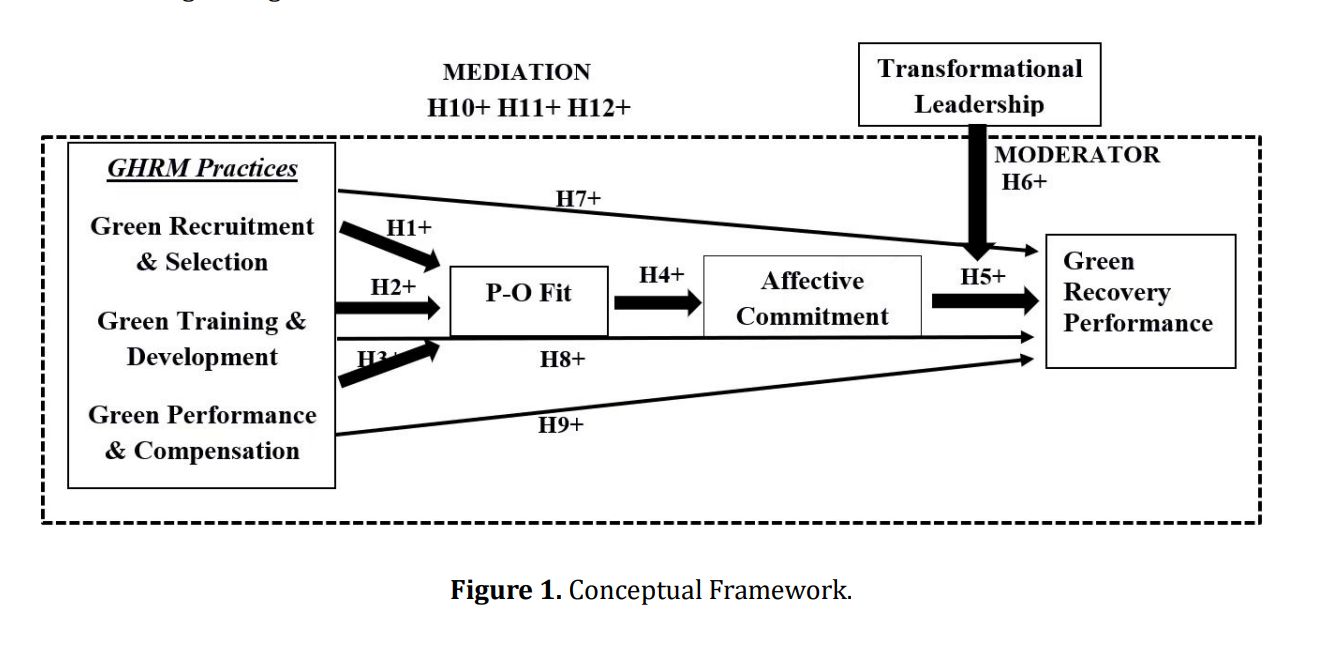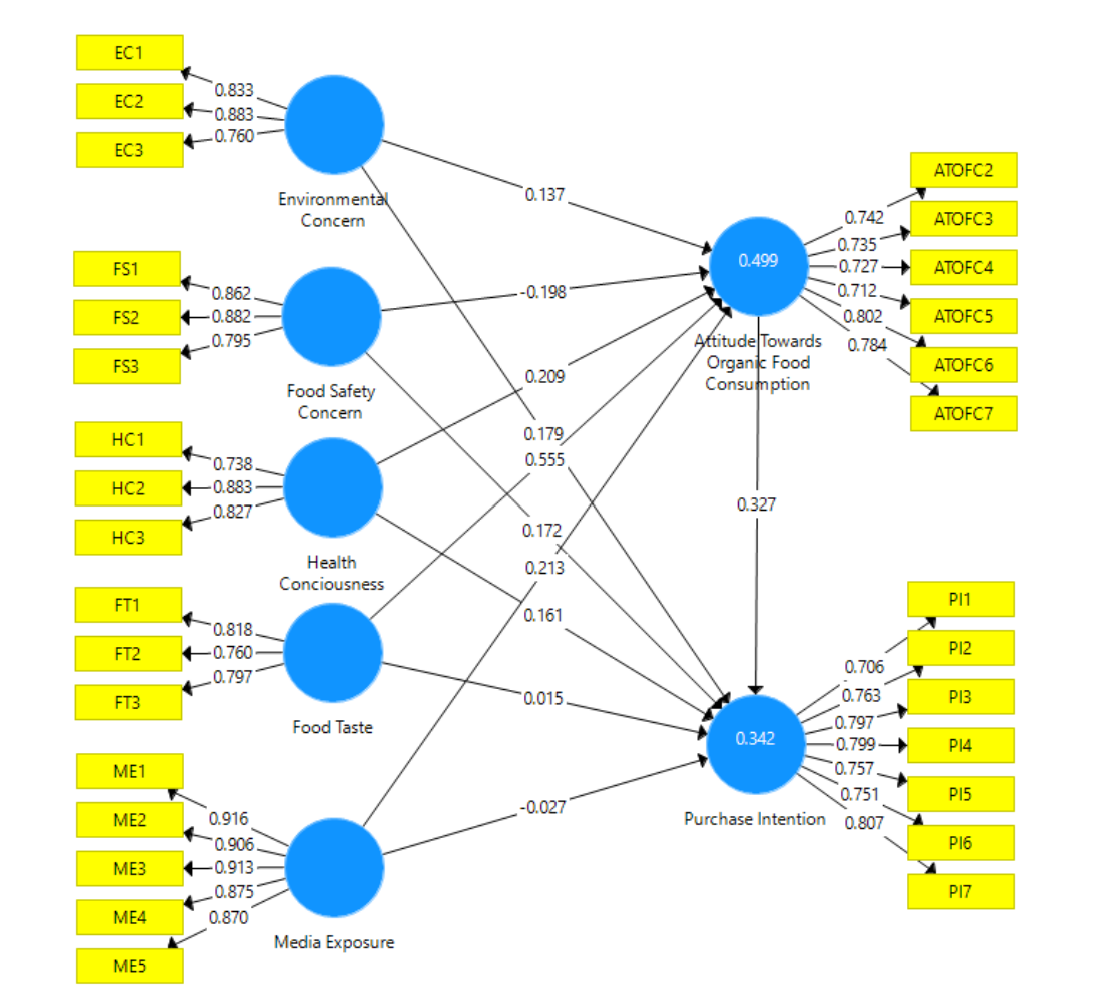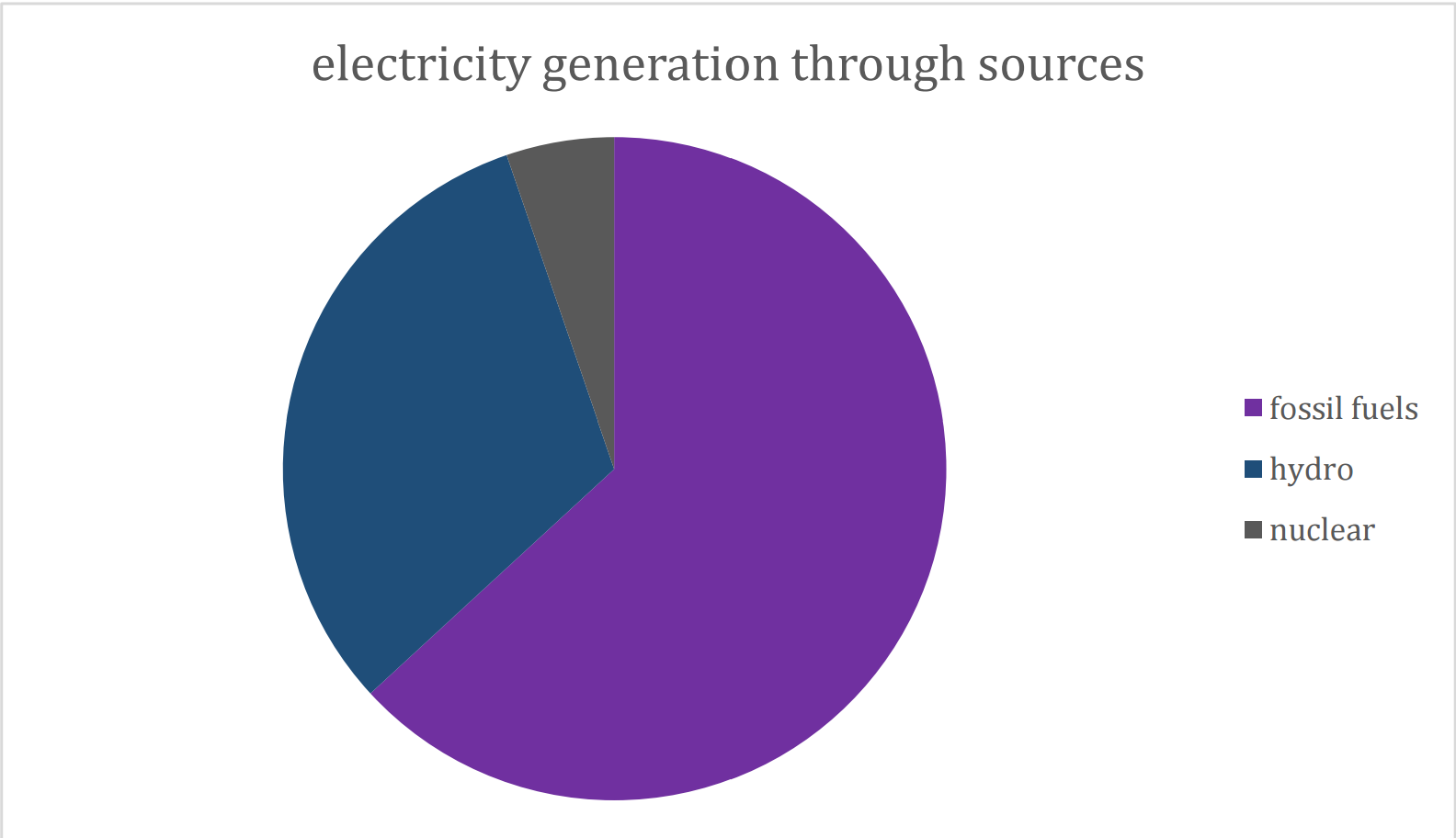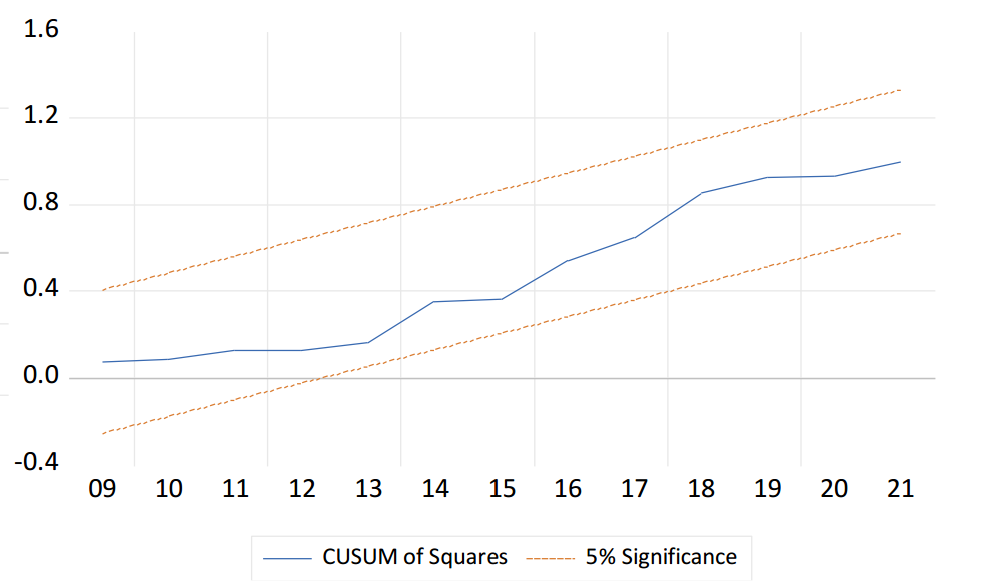Does Education Predict Women’s Use of Unsustainable Biomass Cooking Technologies? Evidence from a Natural Experiment
Abstract
In developing countries, the dependence on traditional biomass for domestic energy consumption is one of the major causes of deforestation and environmental poverty. This paper investigates the impact of women’s education on the probability of using Unsustainable Biomass Cooking Technologies (UBCT) as the household main fuel of cooking instead of clean energy. Combining data from four rounds of Nigeria DHS conducted between 2003 and 2018, we take advantage of a natural experiment, the implementation of Uni-versal Primary Education policies in 1970, to obtain an exogenous variation in women’s education levels. Using an instrumental variable approach to control for the endogeneity issues, we find that women with higher levels of education are less likely to use UBCT as their primary source of cooking. This result implies that environmental policies in developing countries should rely not only on income transfers policies as suggested in the literature but also on increasing women's human capital to reduce women’s dependence on unsustainable biomass cooking practices.
Cite This Paper
Bago, J., & Ouoba, M. M. (2024). Does Education Predict Women’s Use of Unsustainable Biomass Cooking Technologies? Evidence from a Natural Experiment. Energy Technologies and Environment, 2(1), 11. doi:10.58567/ete02010005
Bago, J.; Ouoba, M. M. Does Education Predict Women’s Use of Unsustainable Biomass Cooking Technologies? Evidence from a Natural Experiment. Energy Technologies and Environment, 2024, 2, 11. doi:10.58567/ete02010005
Bago J, Ouoba M M. Does Education Predict Women’s Use of Unsustainable Biomass Cooking Technologies? Evidence from a Natural Experiment. Energy Technologies and Environment; 2024, 2(1):11. doi:10.58567/ete02010005
Bago, Jean-Louis; Ouoba, Marie M. 2024. "Does Education Predict Women’s Use of Unsustainable Biomass Cooking Technologies? Evidence from a Natural Experiment" Energy Technologies and Environment 2, no.1:11. doi:10.58567/ete02010005
Share and Cite
Article Metrics
References
- Alem, Y., Beyene, A. D., Köhlin, G., & Mekonnen, A. (2016). Modeling household cooking fuel choice: A panel multinomial logit approach. Energy Economics, 59, 129-137. https://doi.org/10.1016/j.eneco.2016.06.025
- Ali, A., Mottaleb, K. A., & Aryal, J. P. (2019). Wealth, education and cooking-fuel choices among rural households in Pakistan. Energy Strategy Reviews, 24, 236-243. https://doi.org/10.1016/j.esr.2019.03.005
- Angrist, J. D., & Keueger, A. B. (1991). Does compulsory school attendance affect schooling and earnings?. The Quarterly Journal of Economics, 106(4), 979-1014. https://doi.org/10.3386/w3572
- Arora-Jonsson, S. (2011). Virtue and vulnerability: Discourses on women, gender and climate change. Global Environmental Change, 21(2), 744-751. http://dx.doi.org/10.1016/j.gloenvcha.2011.01.005
- Arthur, R., Baidoo, M. F., & Antwi, E. (2011). Biogas as a potential renewable energy source: A Ghanaian case study. Renewable Energy, 36(5), 1510-1516. https://doi.org/10.1016/j.renene.2010.11.012
- Bailey, R. (2008). Another inconvenient truth: How biofuel policies are deepening poverty and accelerating climate change (Vol. 114). Oxfam.
- Bansal, M., Saini, R. P., & Khatod, D. K. (2013). Development of cooking sector in rural areas in India—A review. Renewable and Sustainable Energy Reviews, 17, 44-53. https://doi.org/10.1016/j.rser.2012.09.014
- Barbier, E. B. (2010). Poverty, development, and environment. Environment and Development Economics, 15(6), 635-660. https://doi.org/10.1017/S1355770X1000032X
- Behera, B., Ali, A., & Marenya, P. (2017). A ladder within a ladder: understanding the factors influencing a household's domestic use of electricity in four African countries. Energy Economics, 66, 167-181. https://doi.org/10.1016/j.eneco.2017.05.020
- Birundu, A. O., Suzuki, Y., Gotou, J. I., & Matsumoto, M. (2017). Analysis of the role of forest, biomass policy legislation and other factors that may affect the future of Kenya’s forests: Use of Japanese forestry as a model. Journal of Sustainable Forestry, 36(1), 90-105. https://doi.org/10.1080/10549811.2016.1260037
- Blanco, G., Amarilla, R., Martinez, A., Llamosas, C., & Oxilia, V. (2017). Energy transitions and emerging economies: A multi-criteria analysis of policy options for hydropower surplus utilization in Paraguay. Energy Policy, 108, 312-321. https://doi.org/10.1016/j.enpol.2017.06.003
- Bluffstone, R., Beyene, A. D., Gebreegziabher, Z., Martinsson, P., Mekonnen, A., & Toman, M. (2022). Experience and Learning with Improved Technologies: Evidence from Improved Biomass Cookstoves in Ethiopia. Environmental and Resource Economics, 81(2), 271-285. https://link.springer.com/article/10.1007%2Fs10640-021-00626-1
- Bolaji, B. O. (2012). Effects of unsustainable use of biomass energy for cooking and strategies for their reduction in developing countries. Developing Country Studies, 2(3), 19-25.
- Boute, A. (2009). The potential contribution of international investment protection law to combat climate change. Journal of Energy & Natural Resources Law, 27(3), 333-376.
- Brouwer, R., & Falcão, M. P. (2004). Wood fuel consumption in Maputo, Mozambique. Biomass and Bioenergy, 27(3), 233-245. https://doi.org/10.1016/j.biombioe.2004.01.005
- Campbell, B. M., Vermeulen, S. J., Mangono, J. J., & Mabugu, R. (2003). The energy transition in action: urban domestic fuel choices in a changing Zimbabwe. Energy Policy, 31(6), 553-562. https://doi.org/10.1016/S0301-4215(02)00098-8
- Davis, M. (1998). Rural household energy consumption: the effects of access to electricity—evidence from South Africa. Energy policy, 26(3), 207-217. https://doi.org/10.1016/S0301-4215(97)00100-6
- Demetriades, J., & Esplen, E. (2010). The gender dimensions of poverty and climate change adaptation. Social dimensions of climate change: Equity and vulnerability in a warming world, 133-143. https://doi.org/10.1111/j.1759-5436.2008.tb00473.x
- D'Sa, A., & Murthy, K. N. (2004). LPG as a cooking fuel option for India. Energy for Sustainable Development, 8(3), 91-106. https://doi.org/10.1016/S0973-0826(08)60471-8
- Duflo, E., Greenstone, M., & Hanna, R. (2008). Indoor air pollution, health and economic well-being. SAPI EN. S. Surveys and Perspectives Integrating Environment and Society, (1.1).
- Escalante, L. E., & Maisonnave, H. (2022). Assessing the impacts of climate change on women's poverty: A Bolivian case study. Journal of International Development. https://doi.org/10.1002/jid.3711
- Field, E., & Ambrus, A. (2008). Early marriage, age of menarche, and female schooling attainment in Bangladesh. Journal of political Economy, 116(5), 881-930. https://doi.org/10.1086/593333
- Hiemstra-Van der Horst, G., & Hovorka, A. J. (2008). Reassessing the “energy ladder”: Household energy use in Maun, Botswana. Energy Policy, 36(9), 3333-3344. https://doi.org/10.1016/j.enpol.2008.05.006
- Hou, B. D., Tang, X., Ma, C., Liu, L., Wei, Y. M., & Liao, H. (2017). Cooking fuel choice in rural China: results from microdata. Journal of Cleaner Production, 142, 538-547. https://doi.org/10.1016/j.jclepro.2016.05.031
- Ingale, L. T., Dube, K. J., Sarode, D. B., Attarde, S. B., & Ingle, S. T. (2013). Monitoring and respiratory health assessment of the population exposed to cooking fuel emissions in a rural area of Jalgaon district, India. Asia Pacific Journal of Public Health, 25(6), 463-475.
- Karimu, A. (2015). Cooking fuel preferences among Ghanaian Households: an empirical analysis. Energy for Sustainable Development, 27, 10-17. https://doi.org/10.1016/j.esd.2015.04.003
- Karimu, A., & Dramani, J. B. (2021). Energy Consumption Patterns in Africa: The Role of Biomass Fuels for Cooking and Fuel Use in the Transportation Sector. In Sustainable Consumption and Production, Volume I (pp. 315-341). Palgrave Macmillan, Cham.
- Kasperson, J. X., Kasperson, R. E., Turner, B. L., Hsieh, W., & Schiller, A. (2022). Vulnerability to global environmental change. In The social contours of risk (pp. 245-285). Routledge.
- Kaygusuz, K. (2011). Energy services and energy poverty for sustainable rural development. Renewable and sustainable energy reviews, 15(2), 936-947. https://doi.org/10.1016/j.rser.2010.11.003
- Keenan, R. J., Reams, G. A., Achard, F., de Freitas, J. V., Grainger, A., & Lindquist, E. (2015). Dynamics of global forest area: Results from the FAO Global Forest Resources Assessment 2015. Forest Ecology and Management, 352, 9-20. https://doi.org/10.1016/j.foreco.2015.06.014
- Mainimo, E. N., Okello, D. M., Mambo, W., & Mugonola, B. (2022). Drivers of household demand for cooking energy: A case of Central Uganda. Heliyon, 8(3), e09118. https://doi.org/10.1016/j.heliyon.2022.e09118
- Mekonnen, A., Beyene, A., Bluffstone, R., Gebreegziabher, Z., Martinsson, P., Toman, M., & Vieider, F. (2022). Do improved biomass cookstoves reduce fuelwood consumption and carbon emissions? Evidence from a field experiment in rural Ethiopia. Ecological Economics, 198, 107467. https://doi.org/10.1016/j.ecolecon.2022.107467
- Mensah, J. T., & Adu, G. (2015). An empirical analysis of household energy choice in Ghana. Renewable and Sustainable Energy Reviews, 51, 1402-1411. https://doi.org/10.1016/j.rser.2015.07.050
- Nlom, J. H., & Karimov, A. A. (2015). Modeling fuel choice among households in Northern Cameroon. Sustainability, 7(8), 9989-9999. http://dx.doi.org/10.3390/su7089989
- Oguntoke, O., Adebulehin, A. T., & Annegarn, H. J. (2013). Biomass energy utilisation, air quality and the health of rural women and children in Ido LGA, south-western Nigeria. Indoor and Built Environment, 22(3), 528-534. https://doi.org/10.1177/1420326X12444784
- Orifah, O. M., Ijeoma, M. C., Omokhudu, G. I., Ahungwa, G. T., & Muktar, B. G. (2019). Awareness of the environmental implications of the unsustainable use of biomass energy sources among rural households in Jigawa State, Nigeria. Acta Universitatis Sapientiae, Agriculture and Environment, 10(1), 39-51. http://dx.doi.org/10.2478/ausae-2018-0004
- Osili, U. O., & Long, B. T. (2008). Does female schooling reduce fertility? Evidence from Nigeria. Journal of development Economics, 87(1), 57-75. https://doi.org/10.1016/j.jdeveco.2007.10.003
- Pandey, V. L., & Chaubal, A. (2011). Comprehending household cooking energy choice in rural India. Biomass and bioenergy, 35(11), 4724-4731. https://doi.org/10.1016/j.biombioe.2011.09.020
- Pérez-Peña, M. D. C., Jiménez-García, M., Ruiz-Chico, J., & Peña-Sánchez, A. R. (2021). Analysis of Research on the SDGs: The Relationship between Climate Change, Poverty and Inequality. Applied Sciences, 11(19), 8947. http://dx.doi.org/10.3390/app11198947
- Pundo, M. O., & Fraser, G. C. (2006). Multinomial logit analysis of household cooking fuel choice in rural Kenya: The case of Kisumu district. Agrekon, 45(1), 24-37. https://doi.org/10.1080/03031853.2006.9523731
- Saad, S., & Bugaje, I. M. (2016). Biomass consumption in Nigeria: Trends and policy issues. Journal of Agriculture and Sustainability, 9(2).
- Singh, D. (2019). Linking household energy to local and global environmental change: understanding impacts of clean cooking interventions in rural India (Doctoral dissertation, University of British Columbia).
- Tucho, G. T., Deti, M., Dadi, D., & Teshome, T. (2022). Urban Households’ Biomass Energy Fuel Stacking and Its Implications for Sustainable Development Goal Seven: The Case of Jimma Town, Ethiopia. Global Challenges, 6(5), 2100154. https://doi.org/10.1002/gch2.202100154
- United Nation (2019). Progress on the sustainable development goals: the gender snapshot 2019.
- Wessels, K. J., Colgan, M. S., Erasmus, B. F. N., Asner, G. P., Twine, W. C., Mathieu, R. & Smit, I. P. J. (2013). Unsustainable fuelwood extraction from South African savannas. Environmental Research Letters, 8(1), 014007. https://doi.org/10.1088/1748-9326/8/1/014007
- Wolf, S., J. L. Aber, J. R. Behrman, and E. Tsinigo (2019). Experimental impacts of the “quality preschool for ghana” interventions on teacher professional well-being, classroom quality, and children’s school readiness. Journal of Research on Educational Effectiveness 12(1), 10–37. https://doi.org/10.1080/19345747.2018.1517199
- Wong, S. (2009). Climate change and sustainable technology: re-linking poverty, gender, and governance. Gender & Development, 17(1), 95-108. https://doi.org/10.1080/13552070802696953



